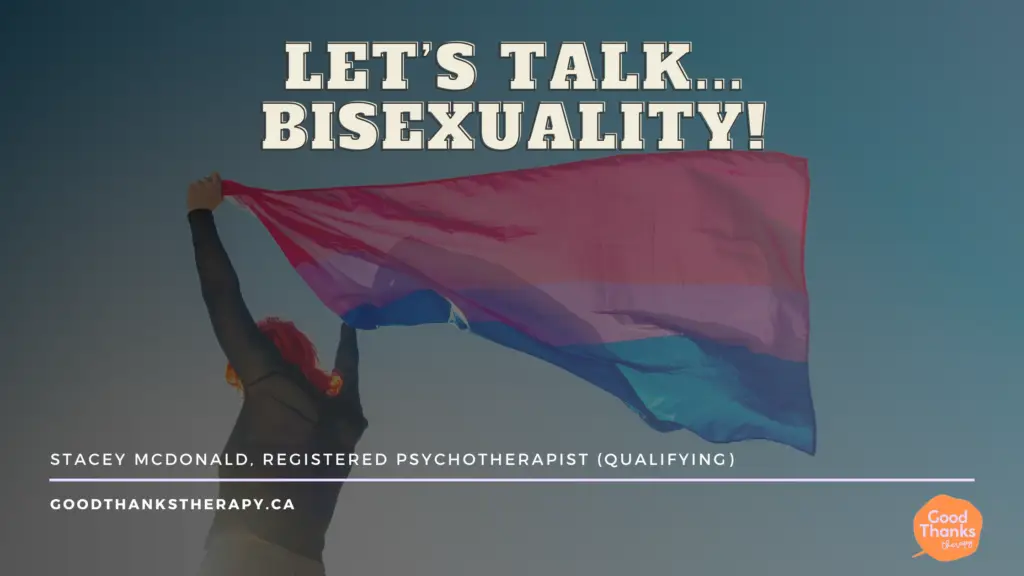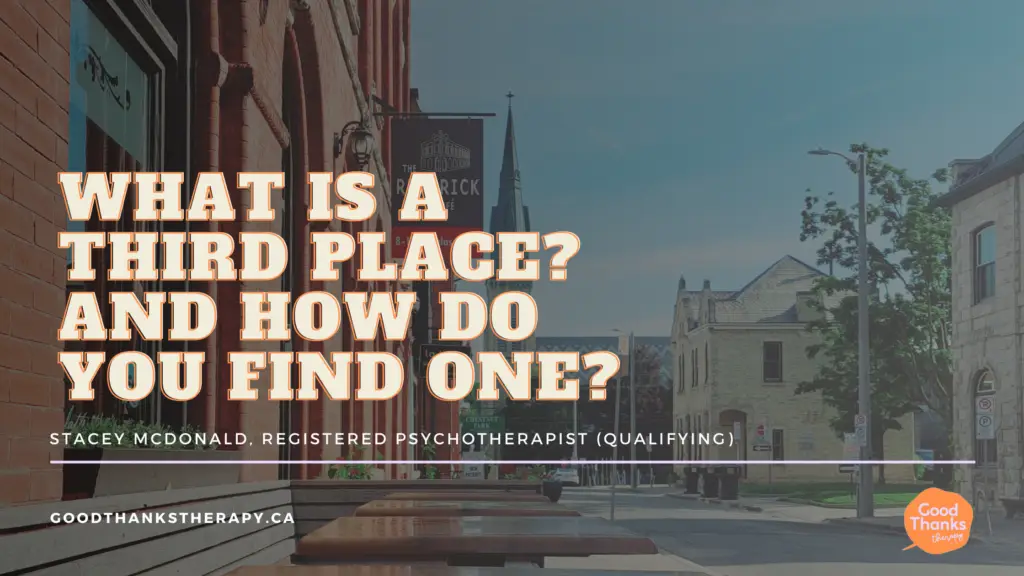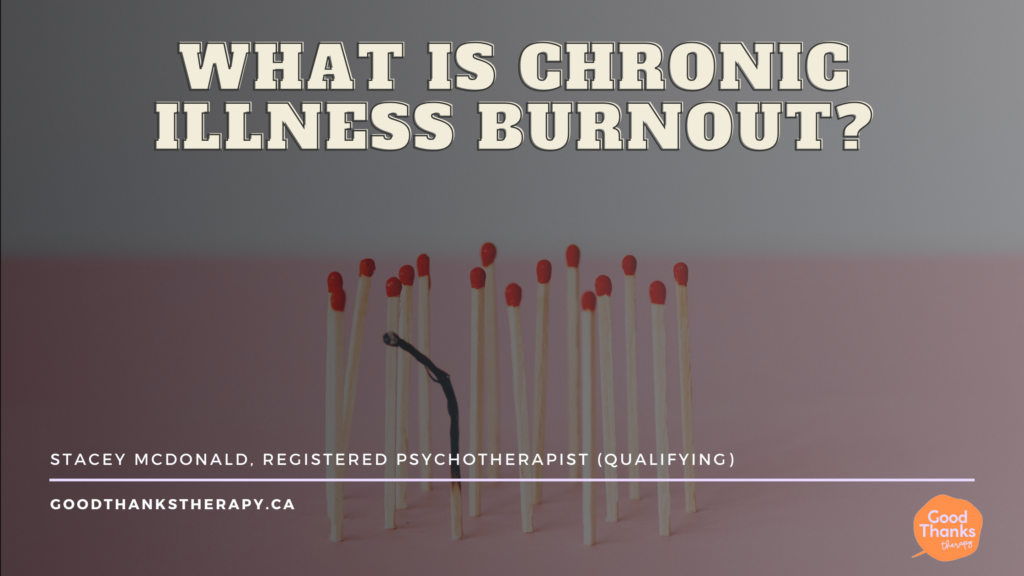September is a big month for bisexuality. Not only is September Bisexual Visibility Month, but this week (September 16–23) is Bisexual Awareness Week, which ends on International Bisexuality Day. Whew, I don’t think I’ve said the word bisexual so much in one sentence before, but what better time to talk a bit about, well, bisexuality?
Disclaimer: This is being written from my perspective, with my experience, education, and community guiding my understanding. Bisexuality is complex and individual, which we mention throughout. Your experience may vary from what is being discussed here; the aim is to provide insight and awareness in a general sense to the best of my ability.
What is Bisexuality?
Now, there’s no way I will be able to effectively conceptualize the spectrum of ways that people identify as bisexual or the experiences of those identifying as bisexual; however, there is a general consensus on what the term “bisexual” means in a broader context.
“A broad/inclusive term to describe the attractions (physical, romantic, sexual) towards individuals that aren’t limited to one sex/gender (e.g., two+).”
– Adapted from bi.org definition.
Bisexuality, as we mentioned, can mean a lot of things to a lot of different people, some of which can include:
- Attraction sexes/genders in different ways (i.e., romantically vs. sexually).
- Attraction to one sex/gender more than the other.
- The “BI-cycle,” where attraction towards one sex/gender is greater sometimes more than others.
There is no right or wrong way to be bi!
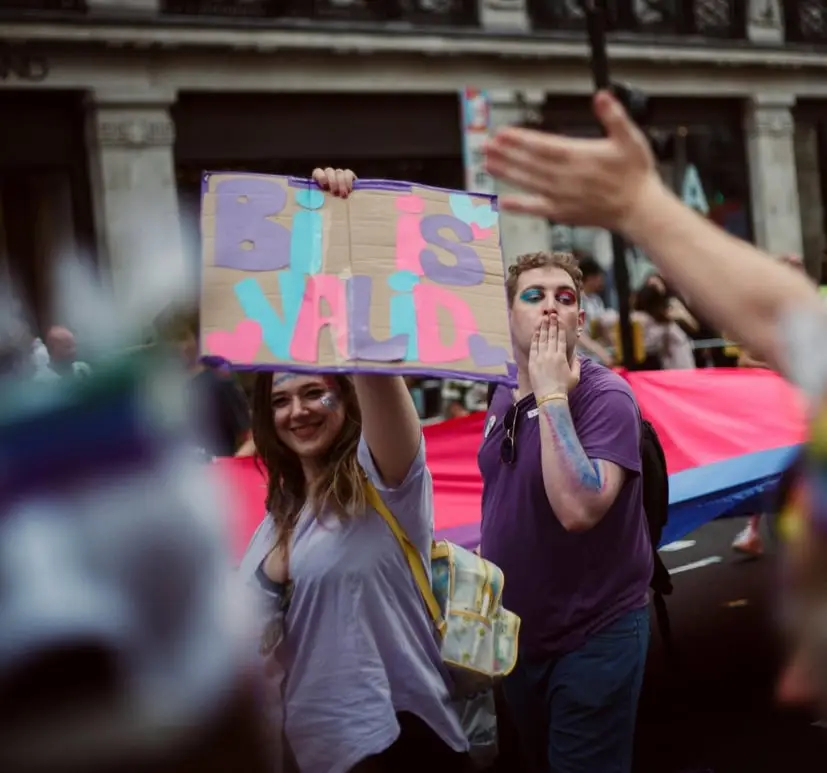
It’s believed that bisexuals make up the “silent” majority of those within the LGBTQIA+ umbrella. When asked, it has been found that most people in the LGBTQIA+ community will identify as being attracted to two or more genders (either physically, sexually, or romantically). Despite being the estimated majority, bisexuals may seem underrepresented due to biphobia (monosexism). In fact, Celebrate Bisexuality Day first started in 1999 after bisexual activists attending the International Lesbian and Gay Association Conference found themselves tired of trying to advocate for their equal involvement in the community. It has since expanded to a week (and now month) where bisexuality can be visible and celebrated.
So, what is biphobia, and why does it still do so much to silence those identifying as bisexual?
What is Biphobia?
Biphobia/monosexism is when the legitimacy of bisexual relationships and attraction are questioned or denied.
What can this look like?
- Saying bisexuals are “greedy”—pick one.
- Assuming bisexual people are more prone to cheating.
- Implying they’re attention-seeking/just want to be different.
- Encouraging bisexual people to “prove it.”
- Suggesting they can’t make up their mind.
- Outright denial of their sexuality, not believing them.
- “But you’re with a…” denying the legitimacy of their sexuality based on the gender of their current partner/romantic interest.
- “How can you say that, you’ve never…”
Bisexuals can often feel “in-between” and face this type of discrimination, shame, and stigma from monosexual people (both heterosexual and other LGBTQIA+ folk). This can make it difficult for a bisexual person to find a sense of belonging, feel the need to over-explain, or fall victim to the stereotypes placed on them (internalized biphobia).
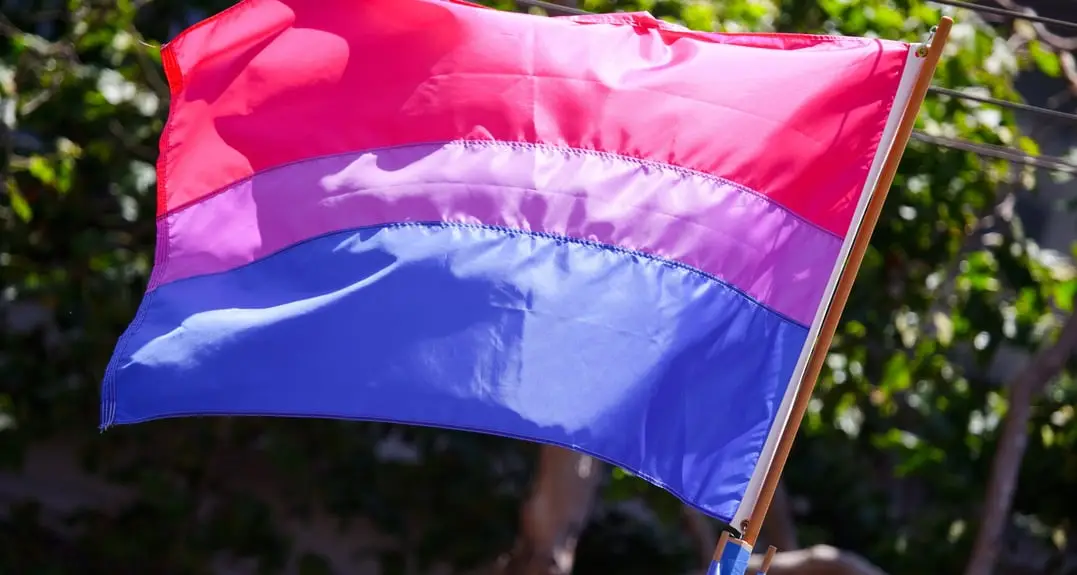
Internalized Biphobia
Internalized biphobia is when the stereotypes, aggressions, and shame placed on bisexual people are, well, internalized. This can be conscious or unconscious and can show up in a variety of ways.
- Explaining their bisexuality to themselves or others as “just a phase,” minimizing their attraction to multiple genders.
- Believing stereotypes such as being incapable of being monogamous, faithful, etc.
- Assuming a relationship with a same-gender partner is less serious than opposite-gender relationships.
- Feeling the need to “show” others or “prove” sexuality through actions or over-explanation.
- “It’s not cheating if…”
- Having different beliefs or standards about the future/seriousness of the relationship depending on the gender of their partner, i.e., marriage
Aside from minimizing and shaming themselves with these internalized actions and beliefs, biphobia has a range of impacts on physical and emotional health.
Impacts of Biphobia
The discrimination, biphobia, and bi-erasure faced by bisexual people in spaces typically meant for queer/LGBTQIA+ folk as well as traditionally heterosexual spaces/relationships can have a significant impact on health outcomes both physically and emotionally.
Physical Health
Both internalized biphobia and the very real disparity in the healthcare system have significant impacts on the sexual, preventative, and long-term health outcomes of bisexual people. Some of the ways this shows up include:
- Increased substance use disorders.
- Being more likely to delay sexual health needs and preventative care (i.e., cancer screenings, HIV and STI prevention, contraceptive concerns, etc.)
- Increased STI risk.
- Increased risk of intimate partner violence (IPV). Stigmas and stereotypes can be used as excuses for unhealthy behaviours and abuse in relationships.
Emotional/Mental Health
It can be hard for bisexual folks to reach out for support with issues relating to their sexuality or mental health due to biphobia. This can mean avoiding asking for help from friends and family and delaying or not seeking professional help. This can have severe consequences for bisexual folks because, compared to those attracted to a single gender, bisexual people are more likely to experience mental health concerns like anxiety, depression, and thoughts of suicide.
When internalized biphobia or experiences of abuse, discrimination and mistreatment are not addressed, it can often find its way into relationships and daily life. This can show up as misplaced anger, dissociation, difficulty maintaining relationships, lack of or extreme boundary setting, etc. The things that impact physical health also take a toll on mental health, such as discrimination, experiences in the healthcare system, negative health outcomes (STIs, etc.), and substance use disorders. These experiences may make it feel as though access to support systems is limited.
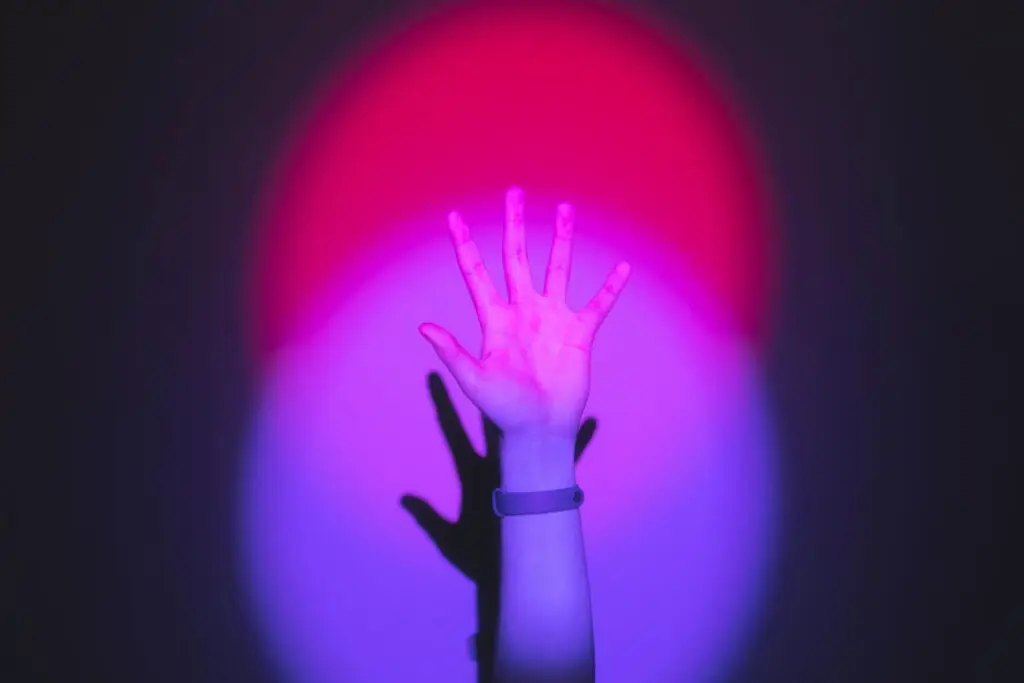
Seeking Support
The fact is, biphobia and bi-erasure are very much still issues that impact people’s willingness and ability to safely access support services. However, in recent years, there has been an increase in practitioners that are bisexual-allied (and LGBTQIA+-allied) and directories that make finding this type of support easier than just googling “LGBTQ therapist near me.” For example, Good Thanks Therapy is proudly LGBTQIA+ and bisexual-allied. If you search for us in directories such as Psychology Today or Rainbow Health, you’ll see that information listed, removing a lot of the guesswork. We’ll list some of these directories and other resources below.
It’s also important to find community—in your family and friends, but also in bi-specific spaces. Most places now have a number of events, groups, forums, and activities that are geared towards bi folks. Find your people!
Resources and Supports
If you’re considering therapy, Stacey McDonald RP (Qualifying) is an LGBTQ+ therapist accepting new clients in Ontario and offers FREE 20-minute consultations.
Directories:
Psychology Today (LGBTQIA+ and bisexual-allied filters)
Affordable Therapy Network (Use the filters!)
Crisis and Support Lines:
Trans Lifeline: 1-877-330-6366 (10 a.m.–4 a.m. ET)
LGBT Youthline: 647-694-4275 (text), youthline.ca (live chat) for LGBTQIA+ youth in Ontario under 29.
Compass LGBTQ+ Support Line: 226-669-3760 (8am-10pm, Guelph/Wellington)
Rainbow Services (Addiction/Drug Use) @ CAMH: 416 535-8501, press 2.
Resources:
Let more about bisexual awareness week.
The Trevor Project: Understanding Bisexuality
Books:
Bi: The Hidden Culture, History, and Science of Bisexuality by Julia Shaw
Greedy: Notes from a bisexual who wants too much by Jen Winston
Bisexual Men Exist by Vaneet Mehta
Bi: Bisexual, pansexual, fluid, and nonbinary youth by Ritch C. Savin-Williams

